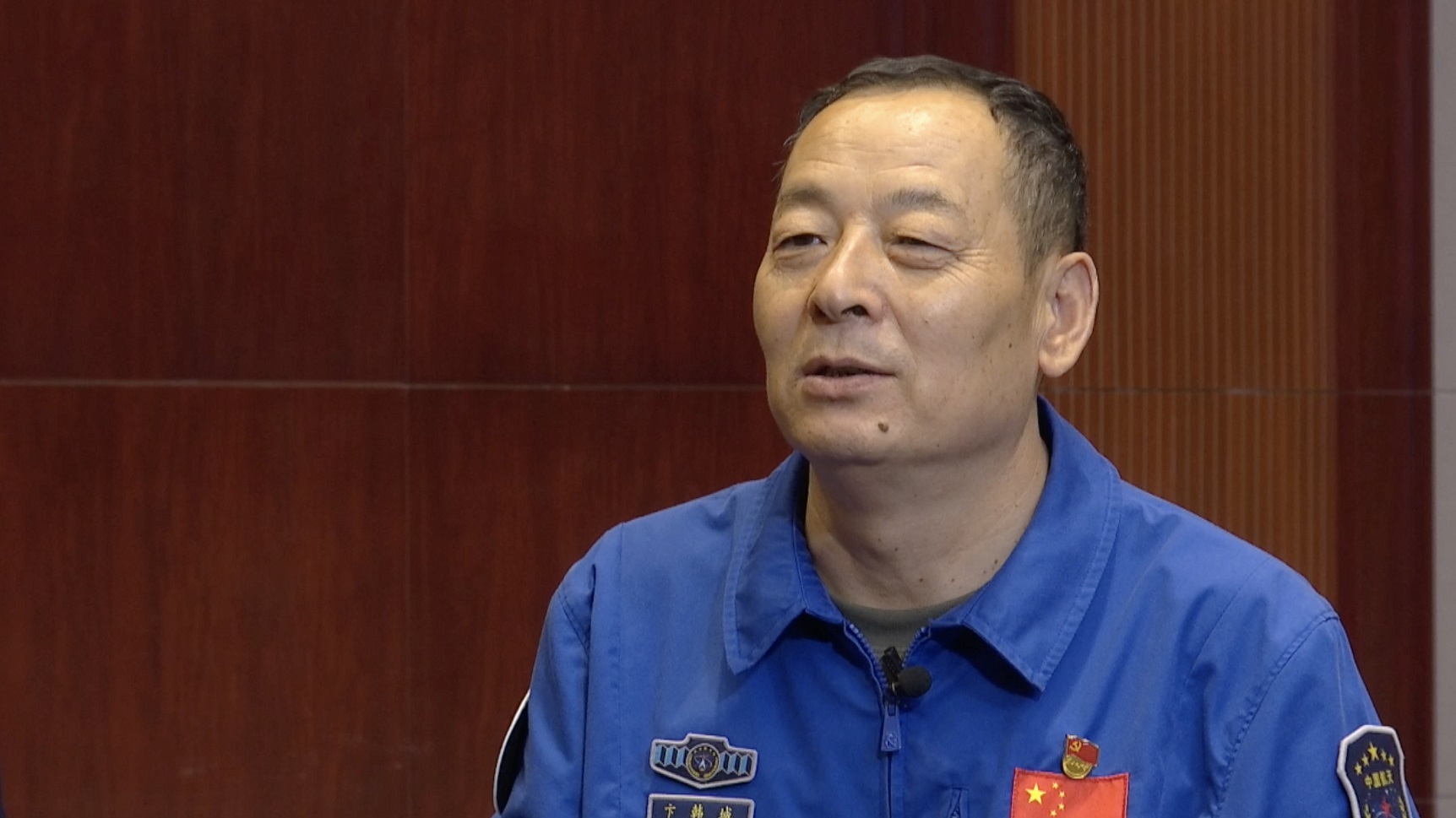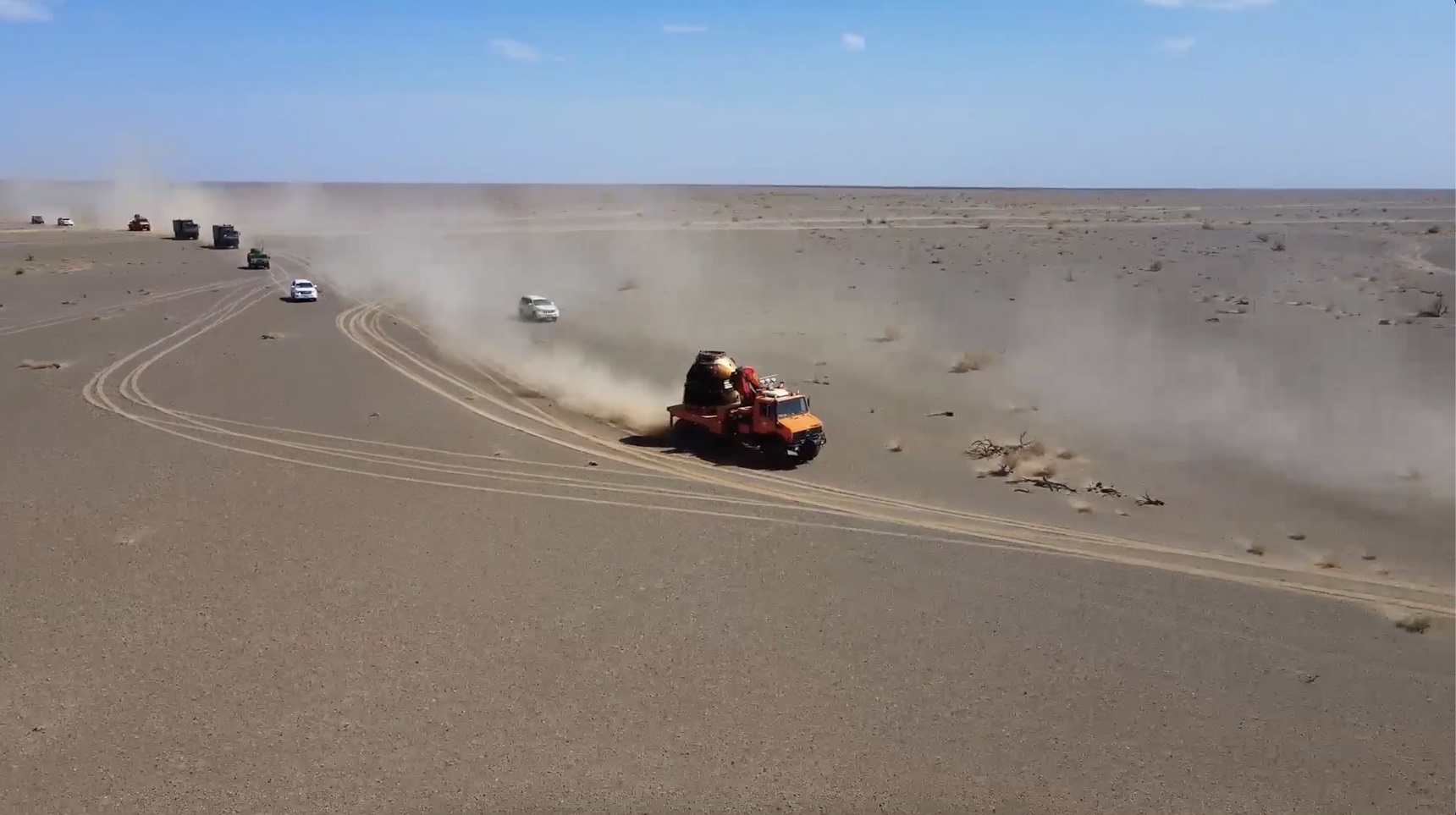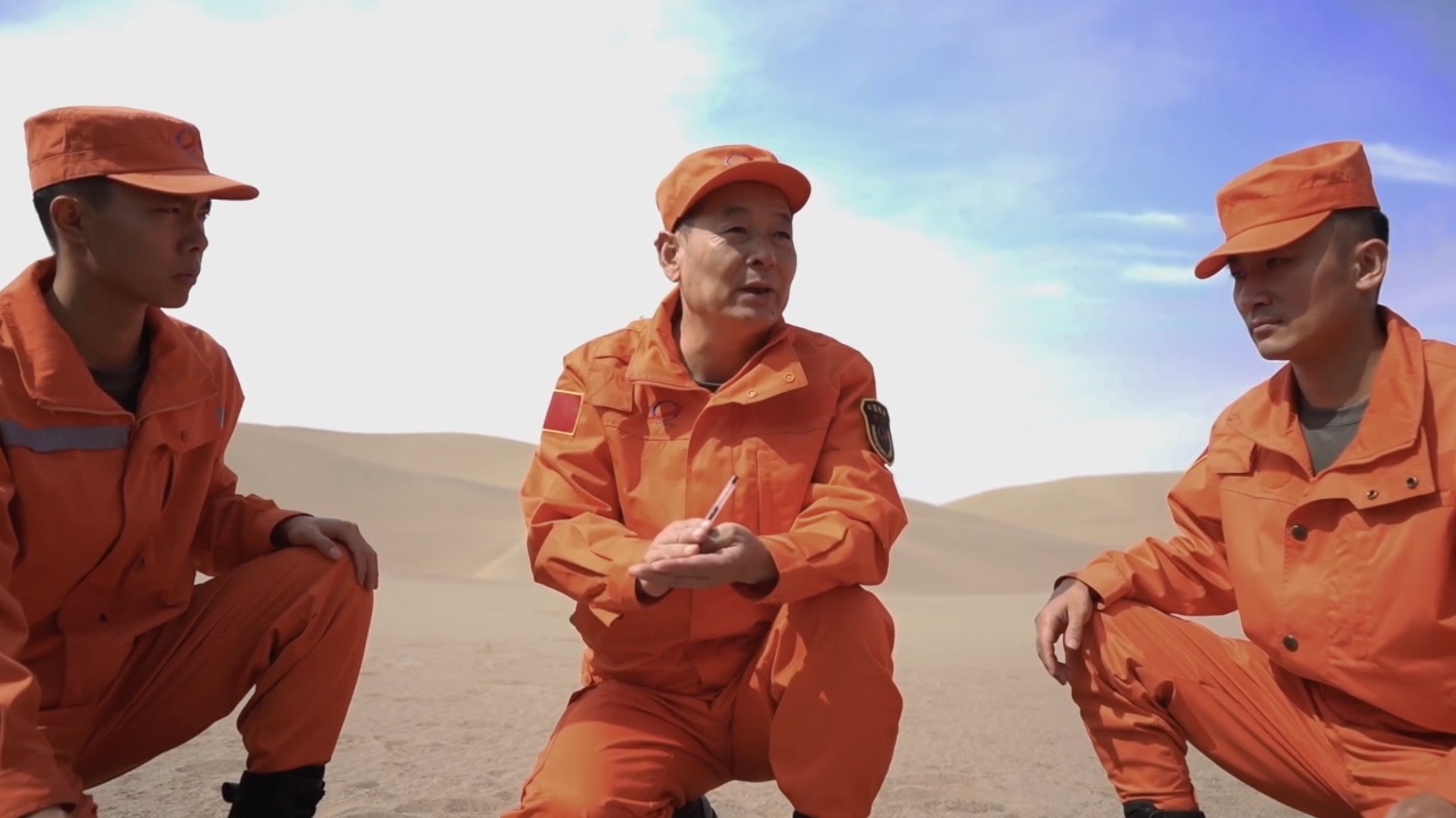03:37

As China gears up for Shenzhou-15's return to Earth on Sunday, Bian Hancheng, deputy chief designer of the landing site system for China's manned space program, highlighted the technological advancements implemented to ensure the safe return of the crew.
Bian said that traditionally, the landing system relies on tracking the search and rescue beacon transmitted by the return capsule, which is an internationally practiced method known for its simplicity and reliability.
However, he said, if the beacon fails, the approach will also fail.
"Therefore, leveraging our powerful telemetry and tracking system at the landing site, we have implemented additional measures to locate the return capsule even in the absence of the beacon," he told CGTN at the Dongfeng Landing Site close to Jiuquan Satellite Launch Center in Northwest China.

The air detachment at Dongfeng Landing Site, Northwest China. /CMG
The air detachment at Dongfeng Landing Site, Northwest China. /CMG
And the deputy chief designer of the landing site system shared what Dongfeng would do.
"Firstly, we have equipped the search helicopters with a monitoring system and provided instructive signals to the pilots," he said. "Additionally, the optronics pod ensures continuous tracking until the capsule lands, enabling us to achieve a target positioning precision of within 30 meters of the landing point."
"Lastly, we utilize searchlights for confirmation, particularly during nighttime operations. Through these enhancements, we have achieved higher reliability, precision, and speed," he noted.
The deputy chief designer further introduced the features of Dongfeng, the only landing site for China's manned missions.
"The U.S. mission lands at sea, while the Russian mission is on land. In China's manned space program, we have chosen land-based landings," he told CGTN. "However, unlike the huge scope of the landing areas of the U.S. and Russia, our landing site is limited to a small range."

The ground detachment at Dongfeng Landing Site. /CMG
The ground detachment at Dongfeng Landing Site. /CMG
He said that this allows them to build a powerful landing system but also limits the chances of returns.
After the China Space Station entered the application and development stage, they plan to establish emergency alternate landing sites close to Dongfeng.
The biggest advantage of these sites is that in the event of an emergency, Taikonauts in space can return to Earth and land in Dongfeng or the designated alternates.
"And the search and rescue personnel from Dongfeng will take over the mission. From a general perspective of the manned space program, it offers good cost performance and enhanced life support capability," he said.
Bian Hancheng has been working at the Jiuquan Satellite Launch Center for nearly 40 years and has witnessed the development of China's space program, and the whole process from the establishment of the manned space program to the application and development stage of China Space Station.

Bian Hancheng and his team at Dongfeng Landing Site. /CMG
Bian Hancheng and his team at Dongfeng Landing Site. /CMG
He will retire soon and shared his feelings towards the jobs there and at the landing site.
"I participated in the return missions from the Shenzhou-1 to the current Shenzhou-15. I think in the past 40 years, China's space program has progressed at an impressive speed, and it has truly realized the dream of becoming a major space power," Bian said.
He said that when he first joined here after graduating, the launch center only carried out a satellite launch mission every few years. Now, it has more than 40 satellite launches every year.
"So, the speed of development is very fast, and the improvement of capabilities is also very evident. Like I said, I love our space endeavors, especially the search and rescue. I love it very much," said Bian with a smile.